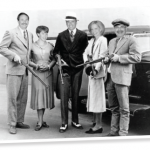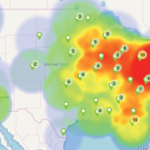Modernize
Members have witnessed several innovations at the ACR over the past few years, including the growth of the Rheumatology Informatics System for Effectiveness (RISE) registry, development of practice measures and exploration of a new rheumatology-specific alternative payment model (APM). Many of these programs were discussed and created by ACR leadership several years before they were launched for the membership. It was the foresight of these leaders, who understood how quality could potentially shape the future of healthcare, that demonstrates they were considering answers to the key question, “What is the job that needs to be done?”
For the next few years, the ACR must be prepared to face many other environmental challenges. One of these is the digital transformation taking place in almost every company and modern organization. To find the answers to the question, “What jobs need to be done?,” we need to operate more like a technology company. As stated in the ACR strategic plan, we need to “become an organization that uses analytics to make better business decisions.”
Analytics and digital transformation can only occur once we have the right kinds of data. Although the ACR has made an investment in a new member database (based on a modern Salesforce platform), the data are not current and may not be the right kinds of data. Once we determine the types of data we need, we will need the cooperation of members to provide the most up-to-date information, so we can “deliver up-to-date and relevant rheumatology information targeted to each member” (ACR Strategic Plan).
Engage
If you think about the ACR like a school bus, you can see it carries many types of people with different backgrounds and levels of experience. One of the jobs to be done is to provide transportation for the journey—everyone is trying to get somewhere. For academicians, the transportation could include research collaboration, scientific publication, training the next generation of rheumatologists and career advancement. For community rheumatologists, it could include the latest data on new therapies, advice from colleagues in other practice settings, evidence-based guidelines or participating in RISE to improve patient care and manage federal reporting requirements.
The idea is that everyone is riding the same bus, benefiting from the same ACR products and services, and they all get something different from their experiences. In the end, everyone is trying to take these experiences back home.
If the ACR is the bus, then member engagement is the fuel that keeps the bus running so we can meet our lofty objectives. By consistently keeping members engaged, we won’t just attract and keep more members, we will have leverage to push through our advocacy agenda, the ability to innovate and create more meaningful educational activities, as well as the ability to meet our mission, “To empower rheumatology professionals to excel in their specialty.”
What does membership engagement look like? In our attempt to become more data driven, we like to measure things, but we need to realize that true engagement is much more than transactional data. That information is important, especially because it is easily tracked and measured, but other activities that provide meaning and purpose to members can be equally significant.
The American Nurses Association (ANA) has developed its own definition of engagement: “Member engagement at ANA is the investment of time, money, attention and participation, by both the association and its members, in order to provide meaningful, long-term, mutually beneficial experiences and relationships that advance the profession.”
It is this investment of time, effort and attention from all our members that will keep the ACR going and fuel its ability to achieve its mission. This engagement is needed from all stakeholders, not just a select few who serve on ACR committees or on ACR leadership. Our challenge then is to come up with a list of jobs to be done for each member segment and a plan to develop meaningful, valuable interactions and experiences that will allow the ACR to advance the interests and needs of each of these stakeholder groups.


